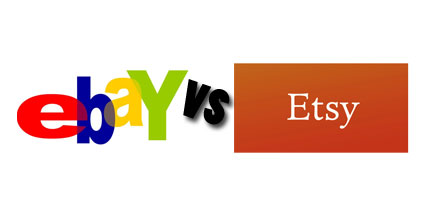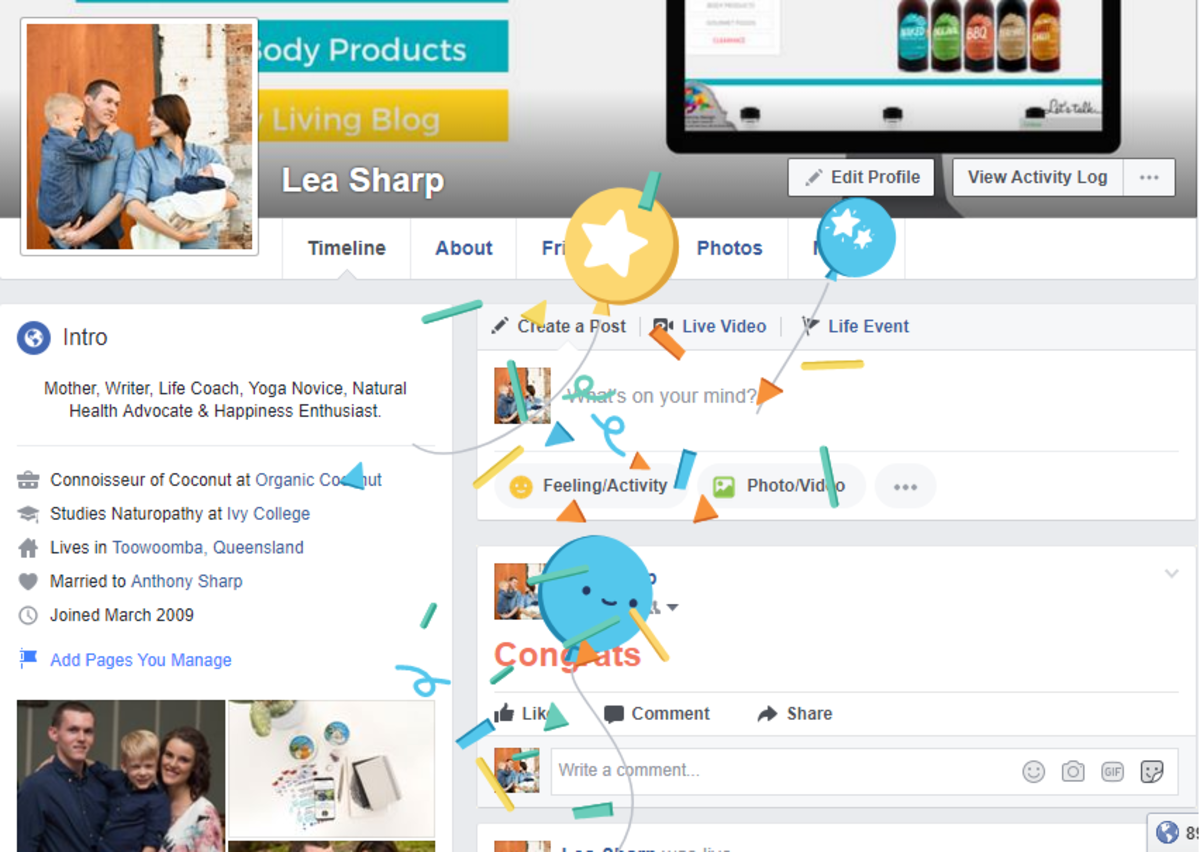Etsy vs. eBay - Who has the edge?

**EDIT: This hub is intended for the purpose of allowing artists, crafters, and vintage sellers to look at two online markets. Etsy is a site dedicated to handcrafted items, materials for making items, and vintage items. Therefore, this article is intended to compare based from only these items.
Having been an owner of two online shops (one Ebay based and the other Etsy) I have found that in the realm of vintage clothing, Ebay is obsolete. There have been discussions based on the question, which is better, Etsy or Ebay?
I am here to provide my opinion backed with a few worthy bullets. Of course, there is a comments section below, so please, by all means share your take! Most of my points are general, but some may apply specifically to vintage items since this is my forte.
Top Five Reasons Etsy Edges Ebay
- Cost - old news that everyone complains about the cost. Ebay and Etsy charge the same insertion fee of $0.20, but it's when the items sells that the two fork off. Etsy charges a 3.5% selling fee on the total cost of the item, which does not include the mailing cost. Ebay charges a whopping 10% for the total cost and then another 10% from the cost of mailing. A $30 item sold on Etsy with $5.95 shipping would cost about $1.25 in total Etsy fees, whereas Ebay would charge $3.80 for the same item. A $2.55 difference! Check outApril's take here...
- Layout - Etsy is a clear winner with its more updated and clean approach to selling. The left navigation bar on Etsy is much more minimal in looks, but does not skimp on the features. Ebay's chaotic search return is a bit hard on the eyes with the varying image sizes and vertical layout. Etsy's horizontal layout and thumbnail consistency give a much cleaner appearance, as well as makes it easier to find items.
- Specialties - Reading a forum on this very topic, one user cited that Etsy had a more boutique approach, whereas Ebay was more like a mall. Though you could say it really depends on what one is searching for, in the realm of specialties such as vintage items, Etsy nudges Ebay to the side.
- The Sellers - look up etsy criminals, and then do the same for ebay criminals. A survey of Etsy buyer satisfaction versus Ebay should be done to prove that Etsy sellers tend to be a tad more on the class act side.
- Post Longevity - Etsy is a sweet spot for those who like to build up their inventory not having to worry about losing their items every 7-10 days. Etsy allows users to have their items up for a month long period, thus allowing more time to generate traffic and thus a sale.
Top Five Reasons Ebay Edges Etsy
- Established - Ebay has been around since 1995, becoming a top recognized logo and the mother of all online shopping. Etsy didn't make her debut until ten years later in 2005. One could probably conclude that Ebay still has the larger market base.
- Variety - As mentioned above, Etsy is more of a boutique, so when people need common to random items, Ebay is the sure winner for this. I mean, you won't find one of these on Etsy!
- Seller Saturation - Etsy is becoming more and more saturated with sellers that it is becoming increasingly difficult for sellers to stand out of the crowd. This plays back into the variety. Ebay's variety spreads to keep the site from becoming over saturated.
- Individualization - A blessing and/or a curse, ebay gives sellers the ability to create distinct pages with html. Etsy's shops are pretty cookie cutter and don't give users the ability to manipulate their postings, which in turn would have them stand out.
- Payment Methods - Some may argue this point, but I think Ebay is smart in nixing the ability to pay for all items with checks or money orders. The reason being that there are too many criminals (as we saw earlier) who take advantage of this system. Etsy's seller and buyer base seem safe for now, but I foresee some disadvantages in the future for this payment type. Ebay is all about tracing the payments, which I think is a smart business move for such a large online market.
The result is that it really depends on what you are selling and buying. I know, I know, a cop-out answer, but look at the few comparisons above and see that it really boils down to what you are selling/buying. Etsy is a bit more particular in what it sells but has much lower fees than Ebay. Ebay has much more spread out inventory and may allow more seller success. Some say that Ebay is dying, but after comparing the two I have to say that Etsy is hitting a plateau, and this is why. As a buyer it really depends. However, shop owners may have a different take.
A recent change in listings has pushed Etsy shops lower in search engines. Couple that with the over saturation of a tunnel visioned online boutique and you get very little ability to sell anything. If you are a new seller you may find yourself better off on Ebay, whereas established sellers should stay put, Etsy and Ebay. If you are struggling on Etsy but are finding the Ebay fees are keeping you from going back, you may just make more revenue on Ebay at the cost of more overhead in the form of fees.
Wanna hear more? Let's hash it out in the comments below.




